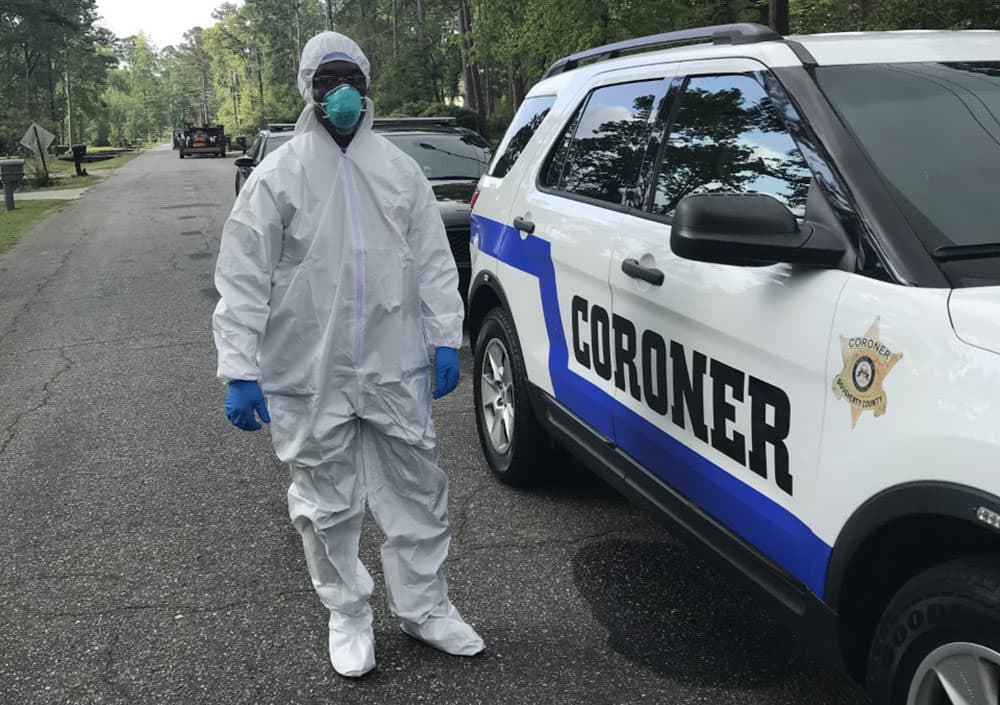Advertisement
Georgia Coroner Says His County Is In A Better Place With COVID-19 Deaths

First responders are bearing the brunt of the coronavirus. Doctors, nurses, emergency medical service workers and coroners see the devastation of COVID-19 firsthand.
In Los Angeles County, mortuary and funeral home workers are overwhelmed. They're having to turn away bereaved families because they don't have enough places to store bodies.
Michael Fowler in Georgia knows this all too well. Back in April, the Dougherty County coroner was working around the clock, handling victims of COVID-19. He says he feels for first responders in LA who are dealing with their most recent surge in infections and deaths.
Fowler, who has worked in 23 major disasters, including 9/11, says he’s never experienced anything as personally devastating as this pandemic.
At one point in the spring, Dougherty County had the most COVID-19 deaths in the state of Georgia. Body bags were running out and morgues were filling up, forcing coroners to store bodies in freezers. Fowler says the situation in his community has improved since then.
“Things definitely have slowed down compared to what I was working earlier. I've had so many family members to pass, coworkers, friends in the community that I know, a lot of the religious leaders,” he says. “I'm able to get a little bit more rest now compared to what I was doing during that time ... I mean, people were just dying everywhere.”
People didn’t fully understand the importance of public health measures until folks they know started to contract and die from the virus, Fowler says. It was important to educate the community about what was happening and that encouraged more people to take precautions.
“I think individuals took it seriously when they started seeing some of their friends and family members die,” he says. “We had never experienced anything like this in our community.”
Before the pandemic, Fowler would wear a suit and tie to meet with grieving families, but in the spring that all changed. He says he had to wear a Tyvek suit, a mask and gloves, and stay six feet away from family members.
Advertisement
Now, he always wears a mask when he enters people’s homes, but says he is able to forgo much of the other personal protective equipment because more people in the community are being tested for the virus.
Fowler has been working nonstop since the start of the pandemic without a moment to mourn. He says won’t stop because he feels “obligated to the community.”
“It's a passion that I have that I want to be there to help someone,” he says. “And then when people are grieving, sometimes you can't put it off. You got to do something at that time.”
He is urging everyone to wear a mask, so we can get to the other side of this pandemic sooner.
“If everyone masks up for the next three or four weeks, everyone, I think we will have a better handle on this virus,” he says. “But it can't be some and some not. Everyone has got to get on the same page.”
Marcelle Hutchins produced and edited this interview for broadcast with Tinku Ray. Samantha Raphelson adapted it for the web.
This segment aired on January 5, 2021.

